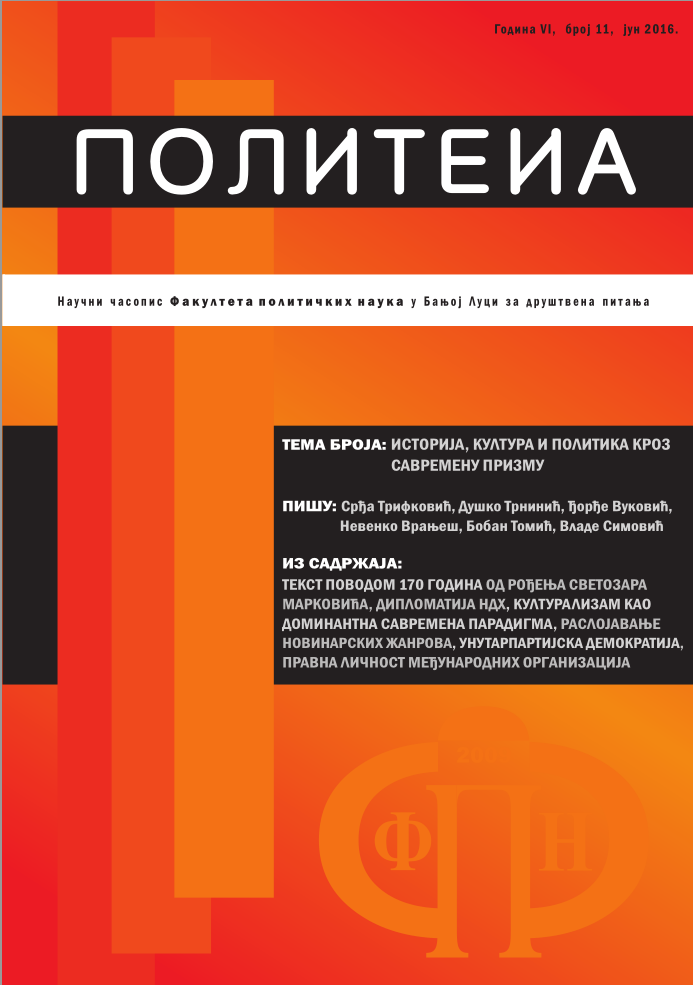Унутарпартијска демократија у Српској
The internal democracies in political parties in the Republic of Srpska
Author(s): Vlade SimovićSubject(s): Political Theory, Political Sciences, History and theory of political science, Comparative politics
Published by: Fakultet političkih nauka Univerziteta u Banjoj Luci
Keywords: political parties; internal organization of political parties; internal democracy in political parties; the Republic of Srpska;
Summary/Abstract: The research question that is in focus of this paper is organization of relevant political parties in The Republic of Srpska, as well as the degree of internal democracy in political parties. By using Sartori's theoretical determination of the relevance of the political parties, we are coming to the conclusion that there are six relevant political parties in the current (2014) convocation of The National Assembly of The Republic of Srpska (SNSD, SDS, DNS, PDP and NDP). Using theoretical criteria such as: member inclusion, centralization and institutionalization of political parties, given by Susan Scarrov, we are conducting the research of degree of internal democracy in political parties in The Republic of Srpska. With this theoretical form, we shall determinate the type of the democracy to which political parties are belonging to. The four types of internal democracies in political parties (parties of the low level of democracy, parties of democratic centralism, individualist and elitist type of the parties, and the parties of full democracy) will be borrowed from Goran Čular to set up the parties form Republic of Srpska to the proper type. Previous studies and political practice in the Republic of Srpska are showing us that there is a low degree of internal democracy in political parties. Internal relations in the political parties are often leading to internal splits within the parties, which is having consequences even in destabilization of the parliamentary majority in the National Assembly. Political parties based in Republic of Srpska are having a competitive relationship within themselves, but the oppositional one in connection to the relevant parties based in the Federation of Bosnia and Herzegovina. This position is making them as a unique block-party that is opposed to Bosniaks and Croatian block-parties from the Federation of Bosnia and Herzegovina. According to that, as well as to the democratic processes within the political parties and beyond them, new dimension of tolerance of the low level of democracy in the political parties is becoming mainstream in The Republic of Srpska, which is nothing than a pure national and entity logic of activity of political parties.
Journal: Politeia - Naučni časopis Fakulteta političkih nauka u Banjoj Luci za društvena pitanja
- Issue Year: 6/2016
- Issue No: 11
- Page Range: 95-118
- Page Count: 24
- Language: Serbian

